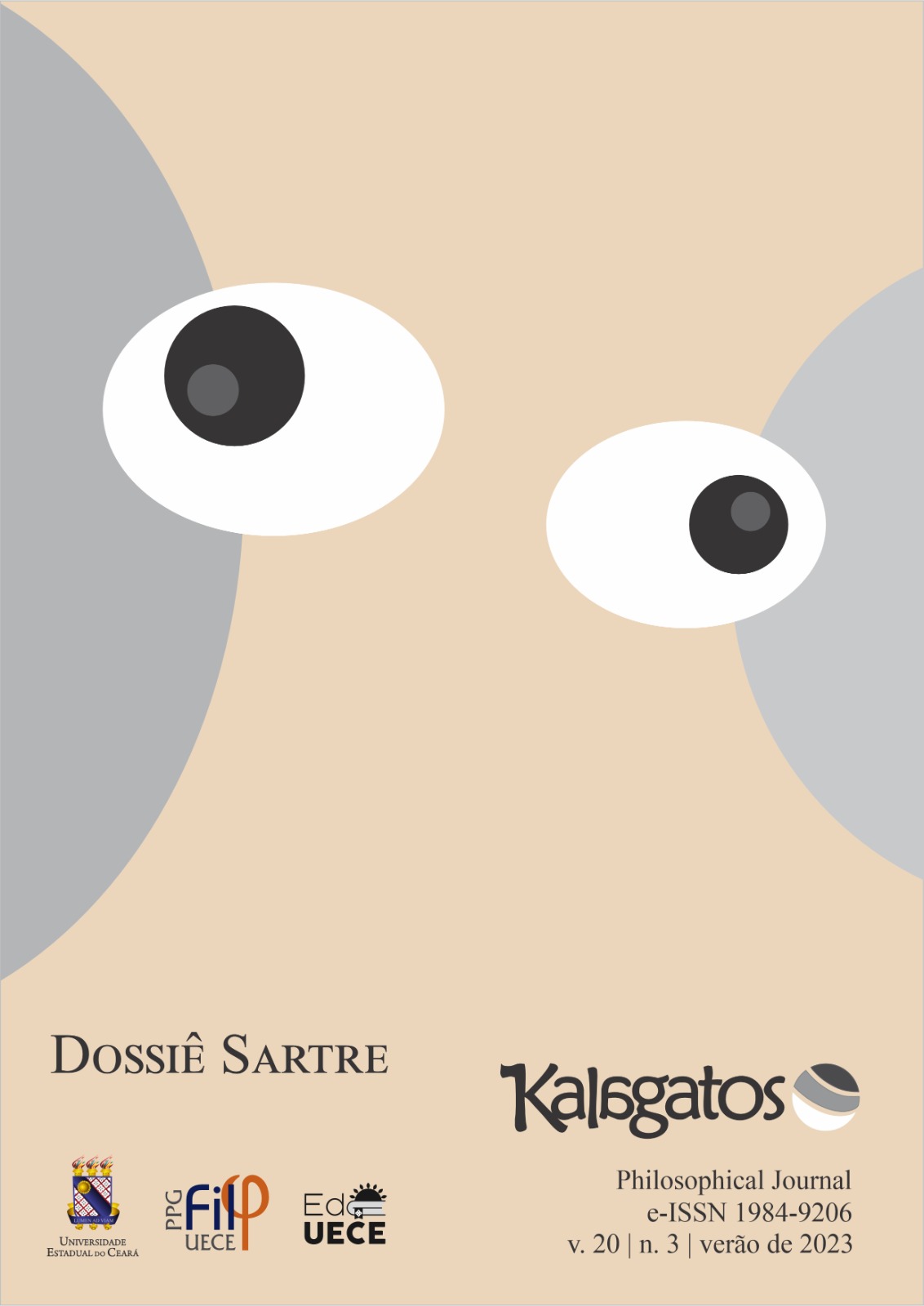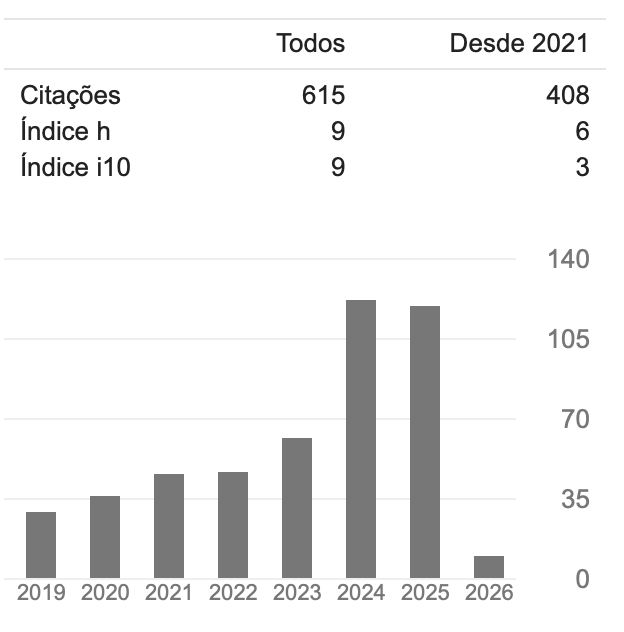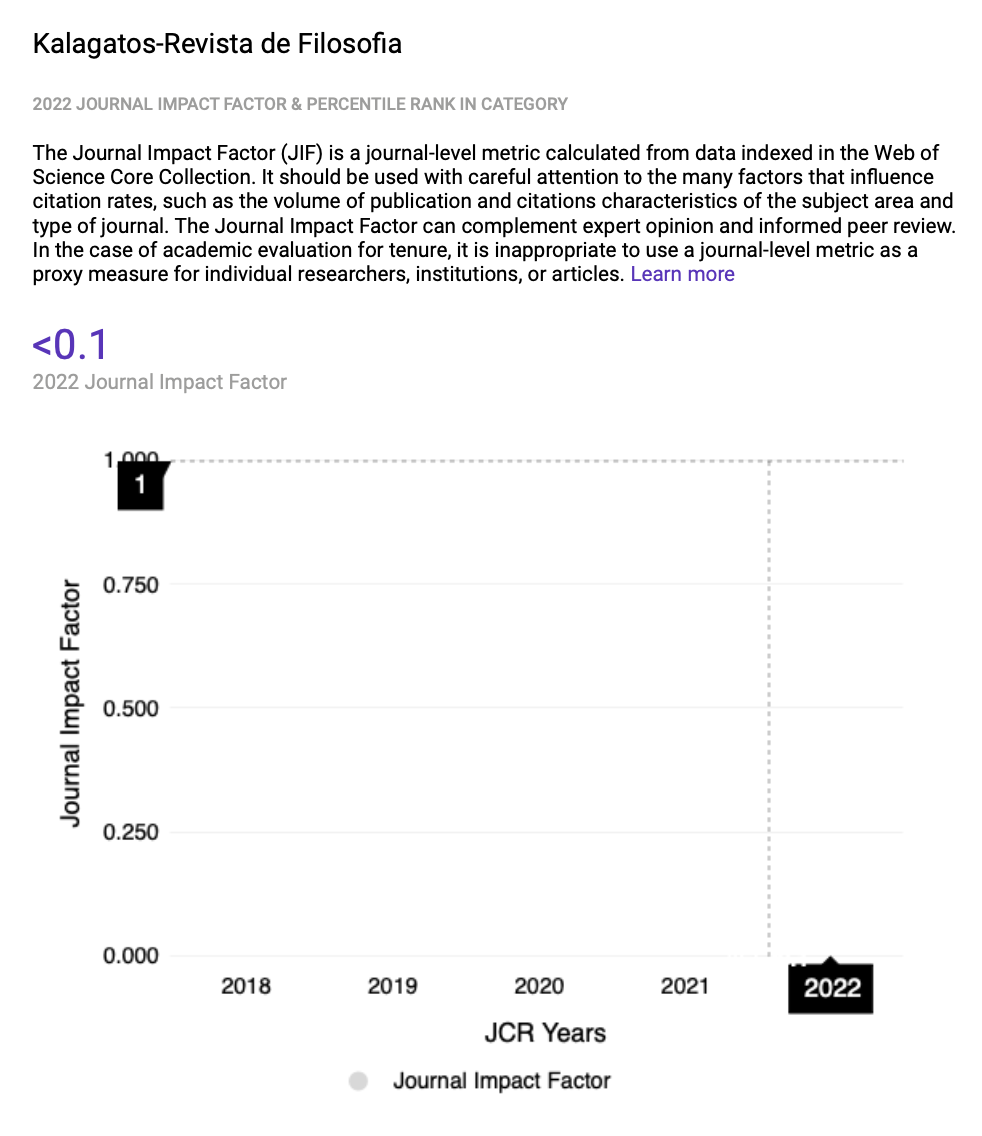Threats and challenges to the scientific representation of semantics
Carnap, Quine, and the Lessons of Semantic Skepticism
Palavras-chave:
semantics, semantic skepticism, semantic problems, Quine, Carnap, KatzResumo
We will approach the problem of semantic skepticism by comparing Quine's view with Carnap's strategy for finding intensional equivalences that guarantee a solution to the paradox of analysis; and then we will consider how the Intensionalists use these possible solutions to save the scientificity of semantics. Quine disagrees with Carnap that plausible solutions to the question of intensional equivalence provide us with explanations for the difficult problems. These are ones where, in contrast to mere extensional indistinguishability of expressions, we need a stronger determination to choose the right interpretation. And then he has a skeptical answer to which the semanticist-linguist cannot remain insensitive. The problem is that a semanticist can only say that he has an "object" of inquiry if a normative property can be reconstructed, but that is not guaranteed by the mathematical theory used to infer intensional values. Finally, we would like to point out the relevance of skeptical doctrines about semantics that go beyond the mere haunting of relativism or quietism about meaning. Without a skeptical approach, we argue, we lose sight of the unique nature of language and its peculiar property of being an object shaped by pressures on its own ability to be theorized.
Downloads
Referências
BERGE, William H. “Carnap and Translational Indeterminacy.” Synthese 105, no. 1: pp. 115–21. 1995.
BRAINE, M.D.S. On the Base of Phrase Structure: a Reply to Bever, Fodor and Weksel. Psychological Review, 72, 483-492. 1965.
CARNAP, R. Meaning postulates. Philosophical studies, vol. 3, pp. 65–73. 1952.
CARNAP, R. Meaning and Necessity. A Study in Semantics and Modal Logic, MidwayReprint, University of Chicago Press, Chicago, pp, 100-106. 1988.
CHOMSKY, N. Quine’s Empirical Assumptions. Synthese, 19, 53-68. 1968.
FINE, K. Semantic relationism: Blackwell Publishing. 2007.
FREGE, G. Sense and Reference. The Philosophical Review, Vol. 57, No. 3 (May, 1948), pp. 209-230. 1948.
HAACK, Susan. Philosophy of Logics. London and New York: Cambridge University Press. 1978.
HEIDRICH, C. Should generative semantics be related to intensional logic? In E. Keenan (Author), Formal Semantics of Natural Language (pp. 188-204). Cambridge: Cambridge University Press.1975.
KATZ, Jerrold J. Semantic Theory. New York: Harper & Row. 1972.
PICKEL, Bryan & RABERN, Brian. Does Semantic Relationism Solve Frege’s Puzzle?. Journal of Philosophical Logic. 2017.
MARCUS, R. B. Modalities and Intensional Languages. Synthese, 13(4), 303–322. http://www.jstor.org/stable/20114401. 1961.
PICKEL, Bryan & Rabern, Brian. Does Semantic Relationism Solve Frege’s Puzzle? Journal of Philosophical Logic 46 (1):97-118. 2017.
PRYOR, J. De Jure Codesignation. In A Companion to thePhilosophy of Language (eds B. Hale, C. Wright and A.Miller). doi:10.1002/9781118972090.ch41, 2017
QUINE, Willard Van Orman (1994). The Ways of Paradox, and Other Essays. New York, NY, USA: Harvard University Press. 1994.
QUINE, W. V. Word and Object. The MIT Press Cambridge, Massachusetts London, England. 2013.
QUINE, W. V. (1951) ‘Two Dogmas of Empiricism’, Philosophical Review, 60, 20-43.
QUINE, W. V. From a Logical Point of View (Harvard University Press, 1953; second, revised, edition 1961)
QUINE, W. V.: 1975, ‘On Empirically Equivalent Systems of the World’,Erkenntnis,9
QUINE, W. V. O. (ed.) (1981). Theories and Things. Harvard University Press.
RYLE, Gilbert, 2009. Collected Essays. 1929-1968. Volume 2. London and New York: Routledge, (1971)
RUSSELL, B. Philosophy of Logical Atomism. London and New York, Routledge Classics, 2010.
SAARINEN, Esa. Linguistic intuition and reductionism: Comments on Katz's paper. Notre Dame Journal of Formal Logic 23:296-304. 1982. 1982.
SOAMES, Scott. Ontology, analyticity, and meaning : the Quine-Carnap dispute. In David Chalmers, David Manley & Ryan Wasserman (eds.), Metametaphysics: New Essays on the Foundations of Ontology. Oxford University Press. pp. 424–43. 2009.
SULLIVAN, P. M. ‘Frege’s Logic’, in Gabbay D. M., Woods J. (eds.), Handbook of the History of Logic, 3, Elsevier BV, 659-750. 2004.
STRAWSON, Peter. Logico-Linguistic Papers. Methuen & Co. Ltda. 1971.
TAYLOR, KENNETH. Names as Devices of Explicit Co-reference. Erkenntnis 80(S2):235-262, 2015.
WILSON, D. Presuppositions And Non-Truth-Conditional Semantics. 1975.
Downloads
Publicado
Como Citar
Edição
Seção
Licença
Copyright (c) 2023 Lucas Vollet

Este trabalho está licenciado sob uma licença Creative Commons Attribution 4.0 International License.



















